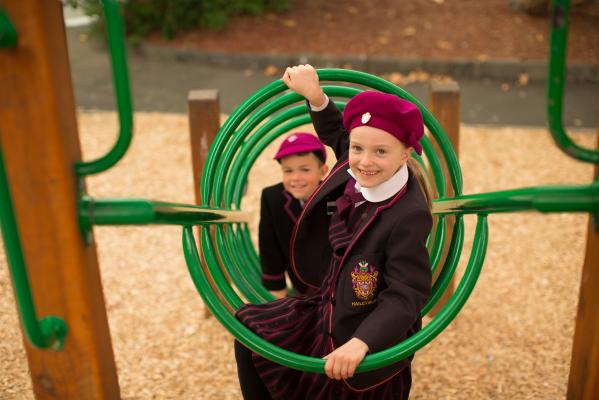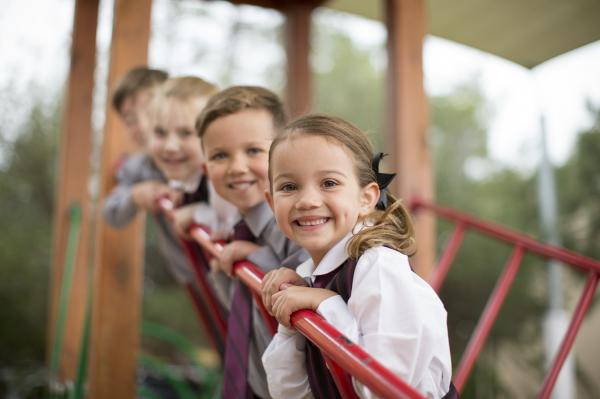
Pre-school is an important life milestone as young learners are introduced to an educational environment.
At Haileybury, this is recognised from day one.
The need to lay the foundations for a child’s education must be balanced with the importance of learning social skills and of course having fun.
Haileybury’s innovative Early Learning Centre (ELC) program combines learning, inclusion, and sustainability with fun in a nurturing environment as children start their education journey.
The Haileybury leadership team bases its approach on what children know now and are ready to learn next, using evidence-based practices to inform teaching and measure its impact.
As a result, the school’s educational and highly engaging ELC program was named as a finalist in the Victorian Department of Education and Training’s Emeritus Professor Collette Tayler Excellence in Educational Leadership Award.
Part of the 2020 Victorian Early Years Awards, it recognises a program that has led educators and teachers to significantly improve the quality of their learning and teaching practices.
Evidence-based Improvement
Haileybury’s ELC program features place-based education, kinship, culture and language, while embedding the values of sustainability and evidence-based inquiry.
Program leaders develop age-appropriate assessment tools to further children’s language and literacy skills, with initiatives trialled and reviewed to ensure continuous improvement.
A recent ELC philosophy review covered program planning, pedagogical strategies and our core values relating to the National Quality Standard, Code of Ethics and UN Rights of the Child.
Two key initiatives were identified for development: sustainability and inclusion and diversity.
Improving Sustainability Awareness
Haileybury’s ELC team has worked hard to embed sustainability into the School’s ELC Program and led an inquiry into what sustainability means to ELC children and families.
Children raised questions about where water comes from and goes and why bushfires happen, leading to broader inquiries about climate and what we can do each day to make a difference.
Parent discussions and surveys contributed to the development of an Early Years Sustainable Practices and Action Plan and the Haileybury Sustainability Strategy.
Supported by professional learning and sustainability research, this initiative led to significant shifts in teaching practices across curriculum areas.
For example, Haileybury’s ELCs teach children how to minimise daily waste, collect data to measure progress, and understand what can be repurposed or composted.
They also learn about the benefits of indigenous plants, how to support wildlife in local wetlands areas, garden to plate programs and renewable energy sources.
Based on these initiatives, the pre-schoolers created the Extended Learning Through our Sustainable Practices book, which was distributed to the School’s Early Years community.
Making Inclusion and Diversity a Priority
After investigating inclusion and diversity in early childhood education, Haileybury developed a Reconciliation Action Plan (RAP) and a Diversity Guide.
Both focus on access, engagement and belonging for all Victorian children and their families. The RAP is linked to daily practice and learning outcomes and drew from the Marrung Aboriginal Education Plan 2016 – 2026, child development theory and anti-bias research.
The ELC team embraced professional learning on embedding Aboriginal and Torres Strait Islander perspectives into the curriculum and attended Reconciliation Symposiums.
An RAP steering committee of educators and parents volunteered to meet regularly, review curriculum and pedagogy and share this with their educational teams and families.
Reciprocal relationships and partnerships between the ELC, Aboriginal Elders and the early learning community continue to evolve so that cultural safety is appropriately recognised.
These professional learning and mentorship programs have significantly improved teaching and learning outcomes for children.
Our educators also work closely with ELC families and Junior School teachers to share the RAP initiatives and outcomes.








